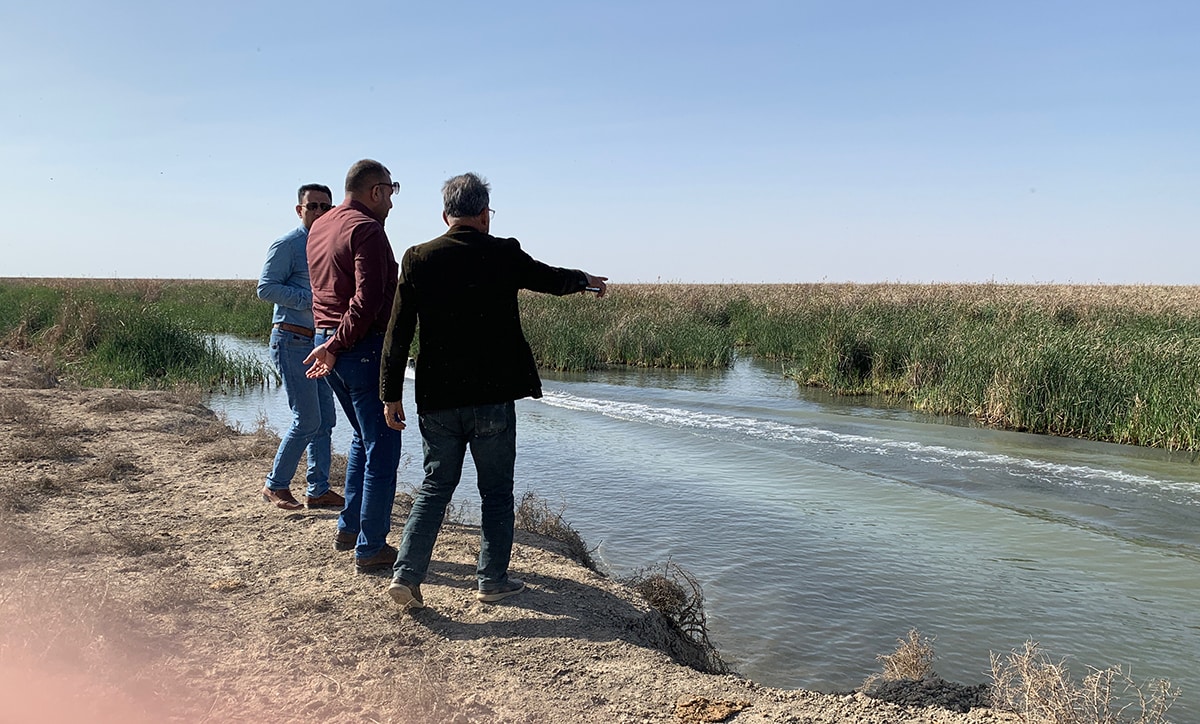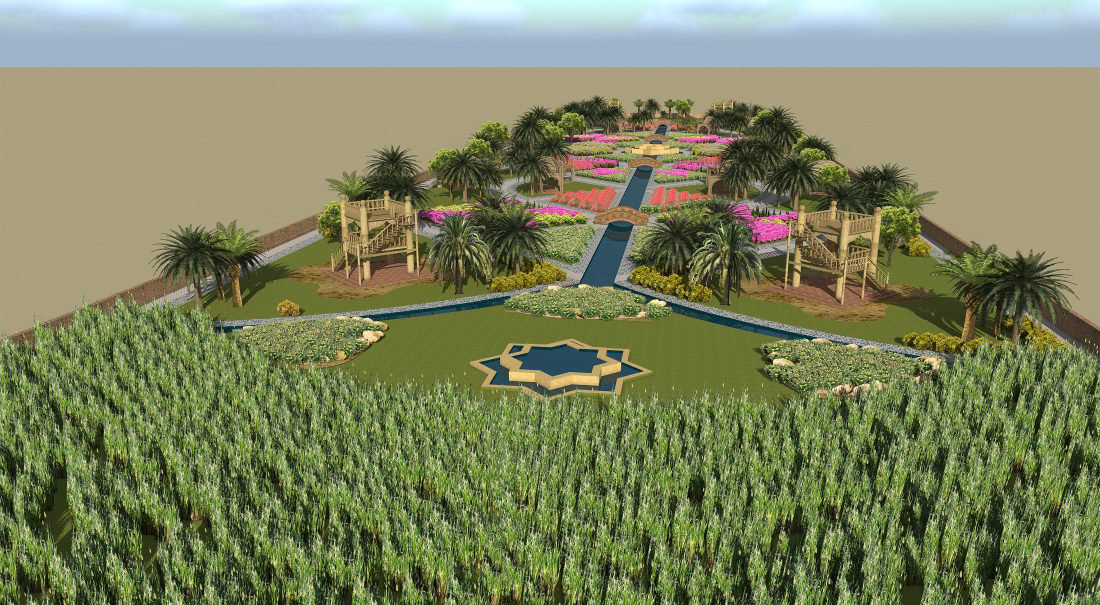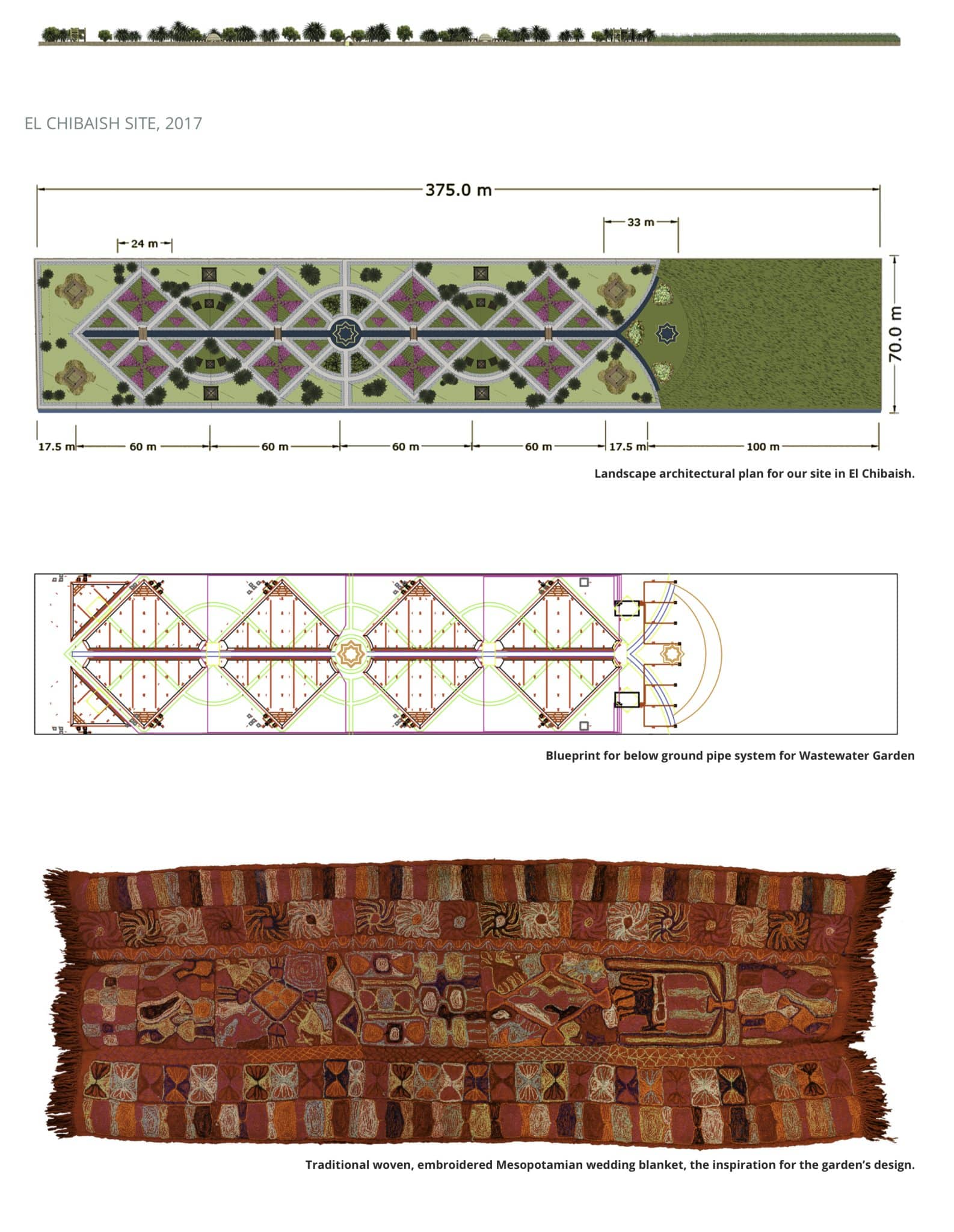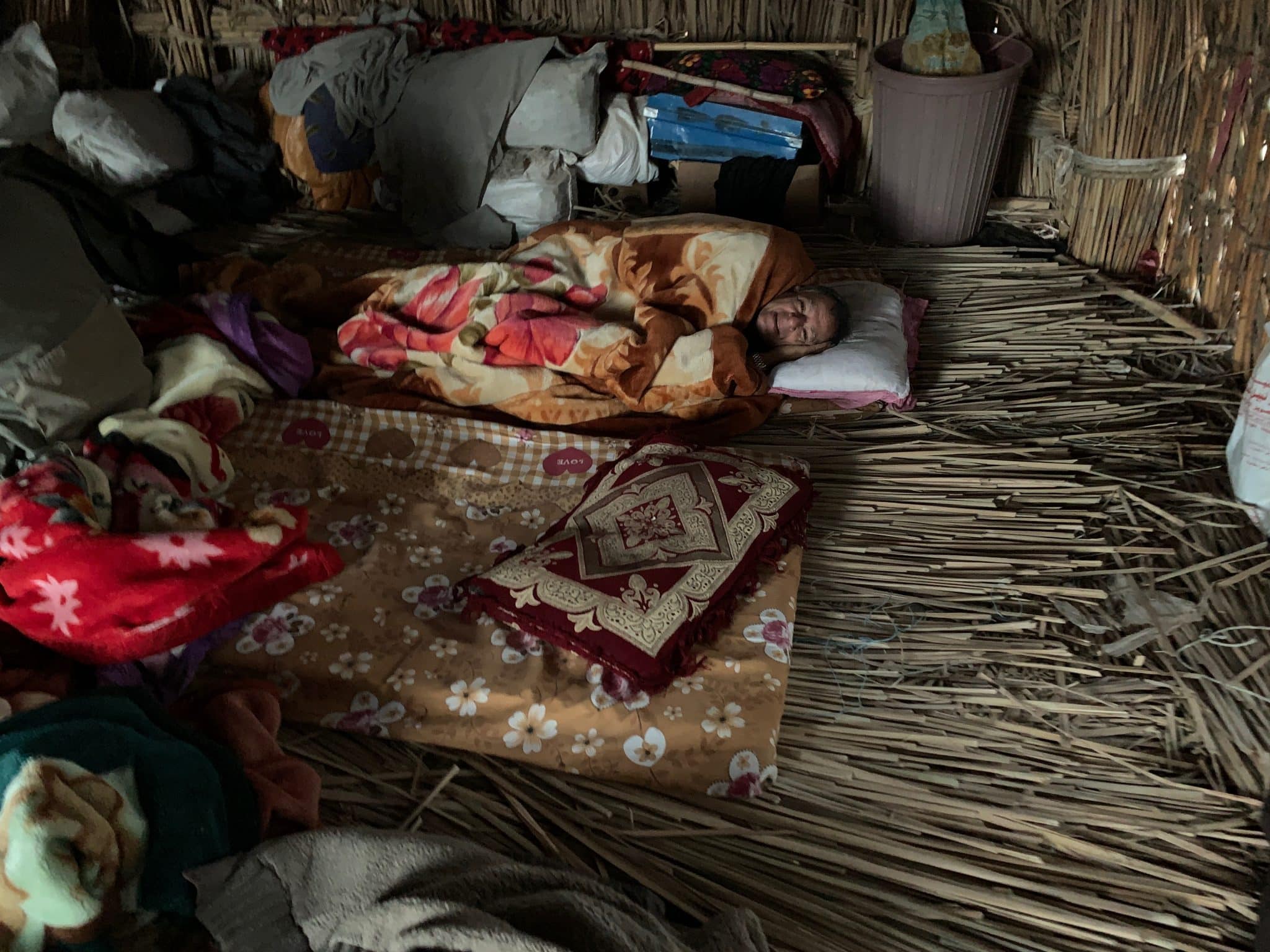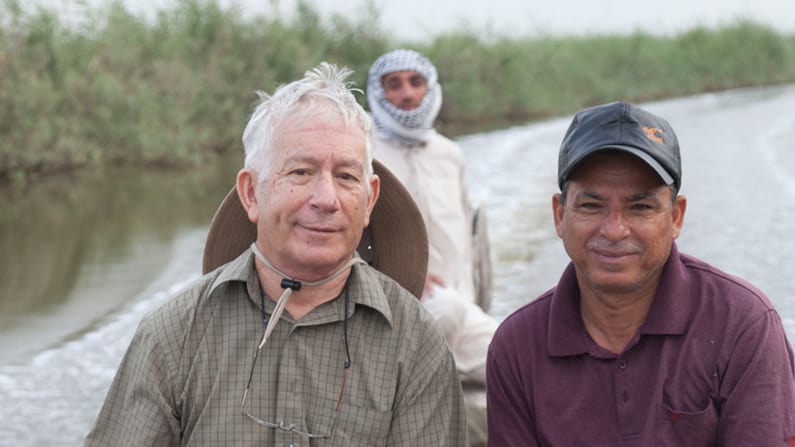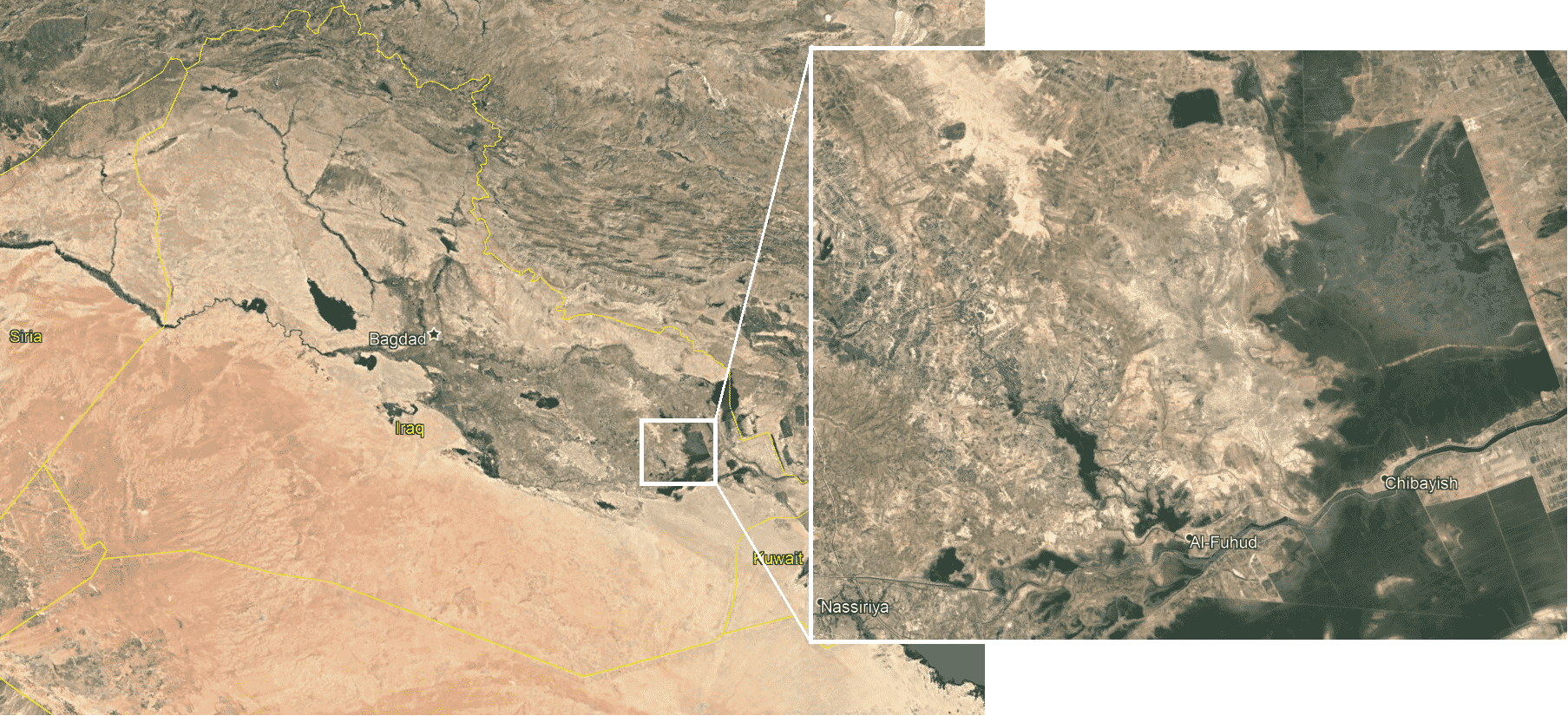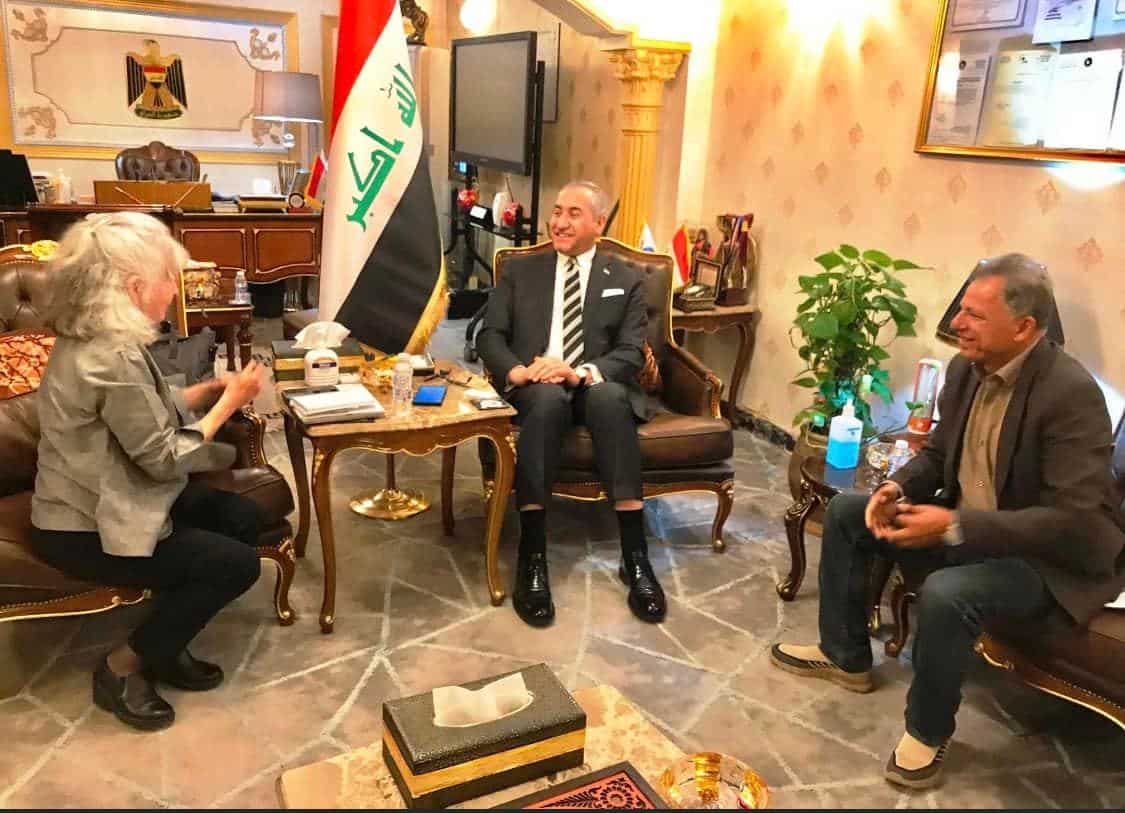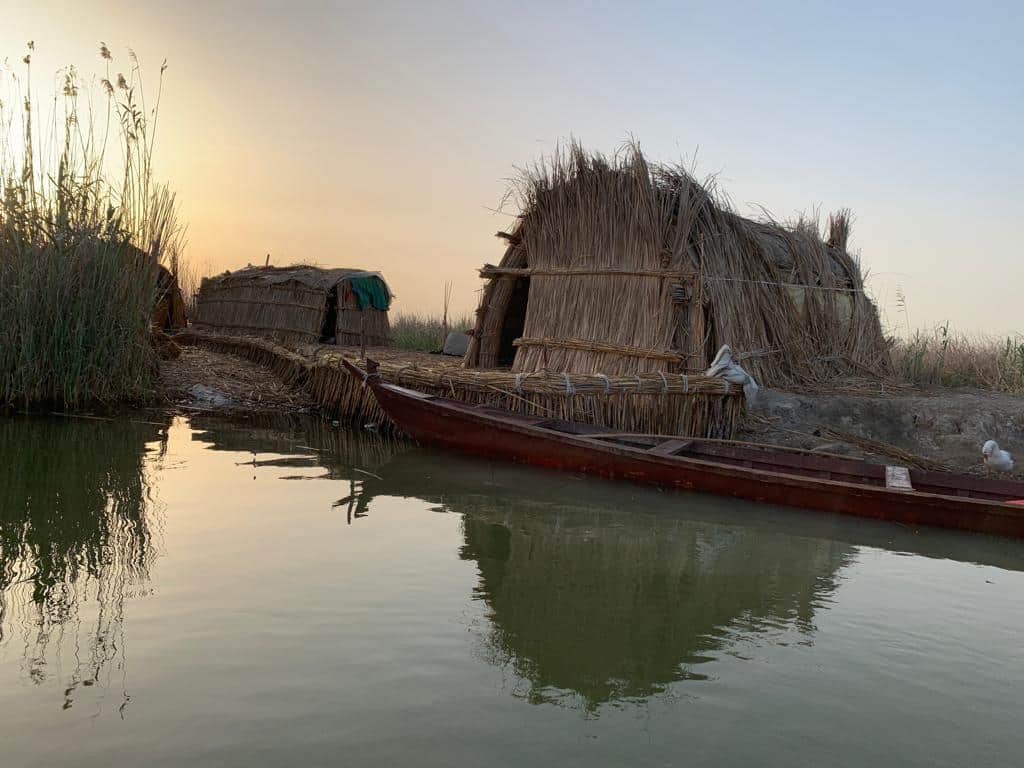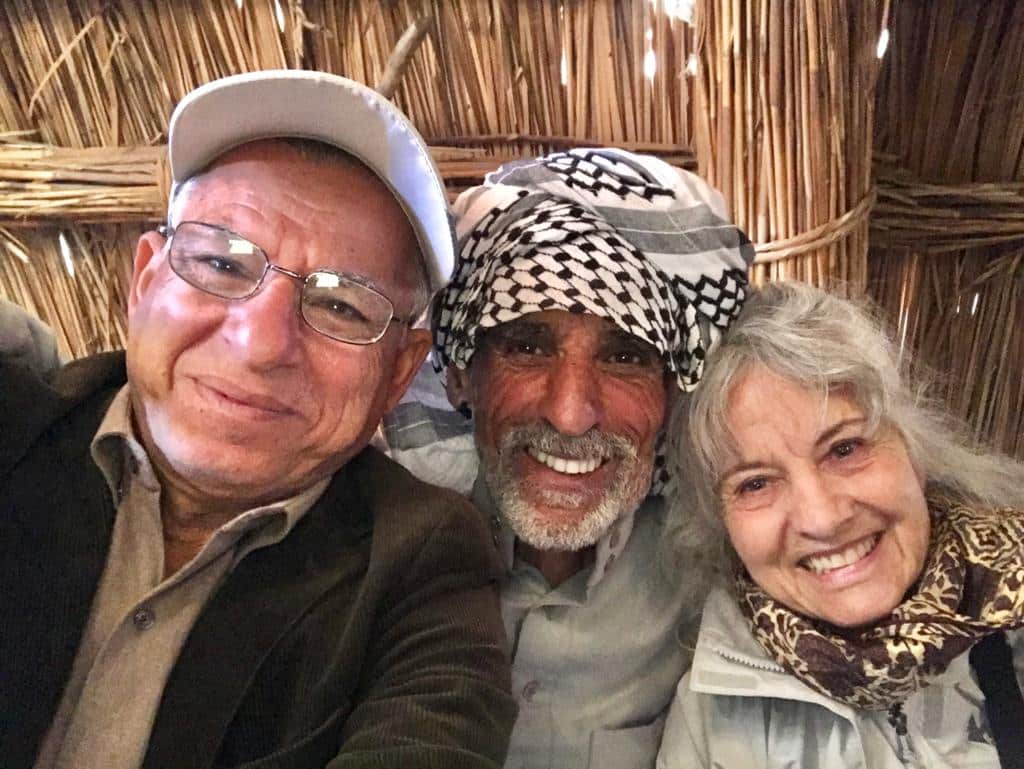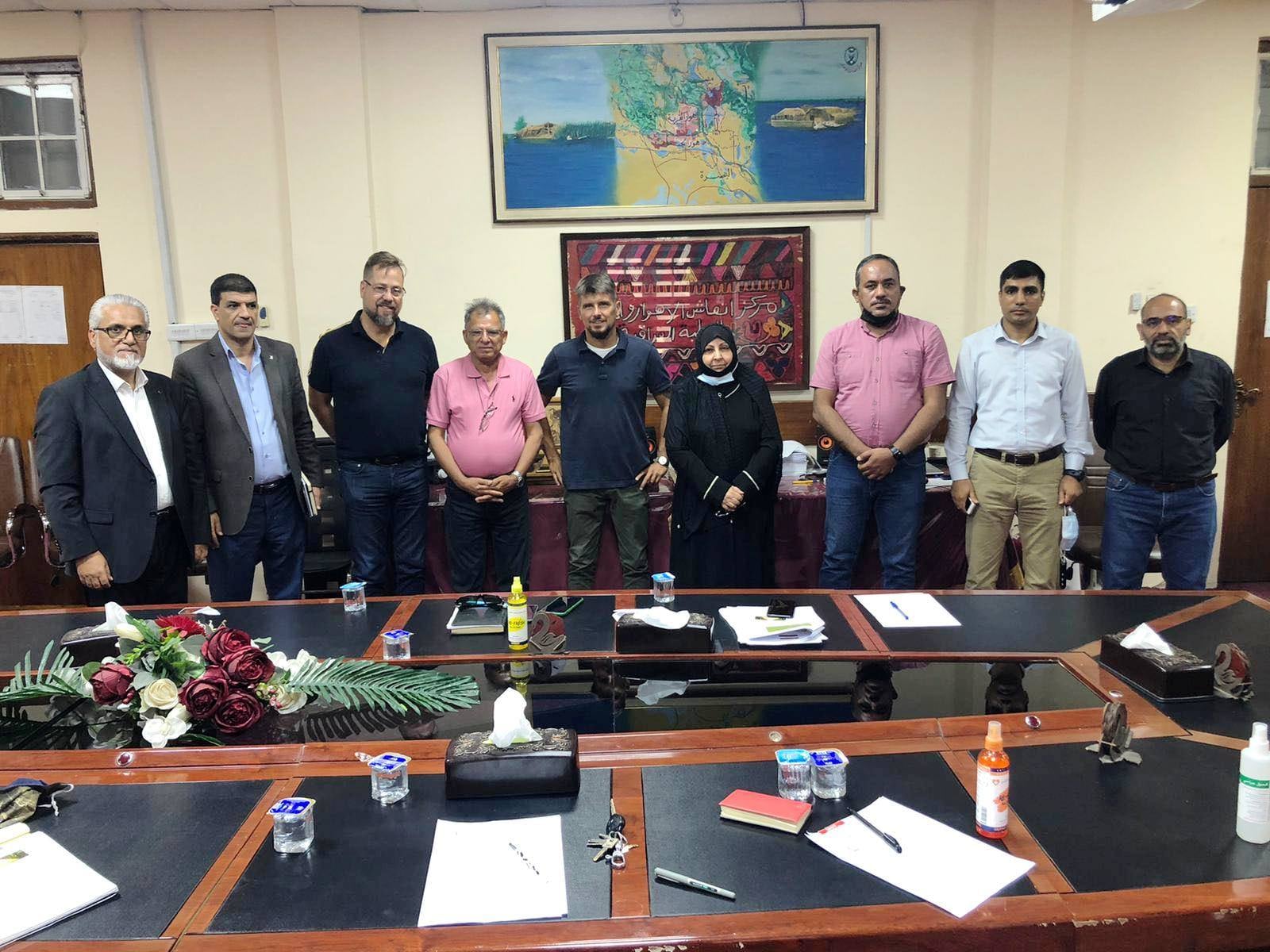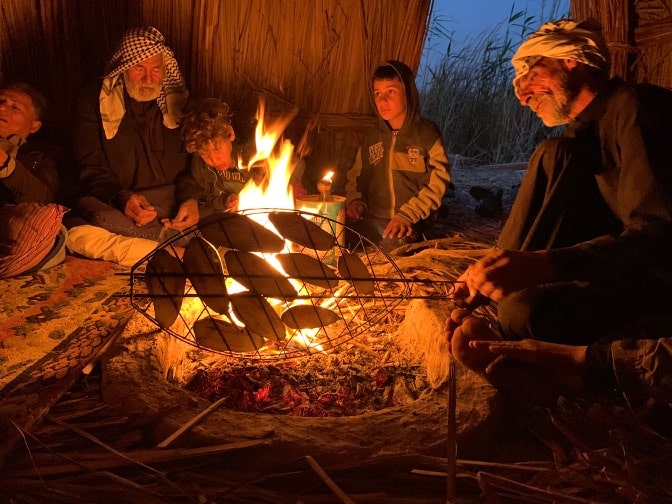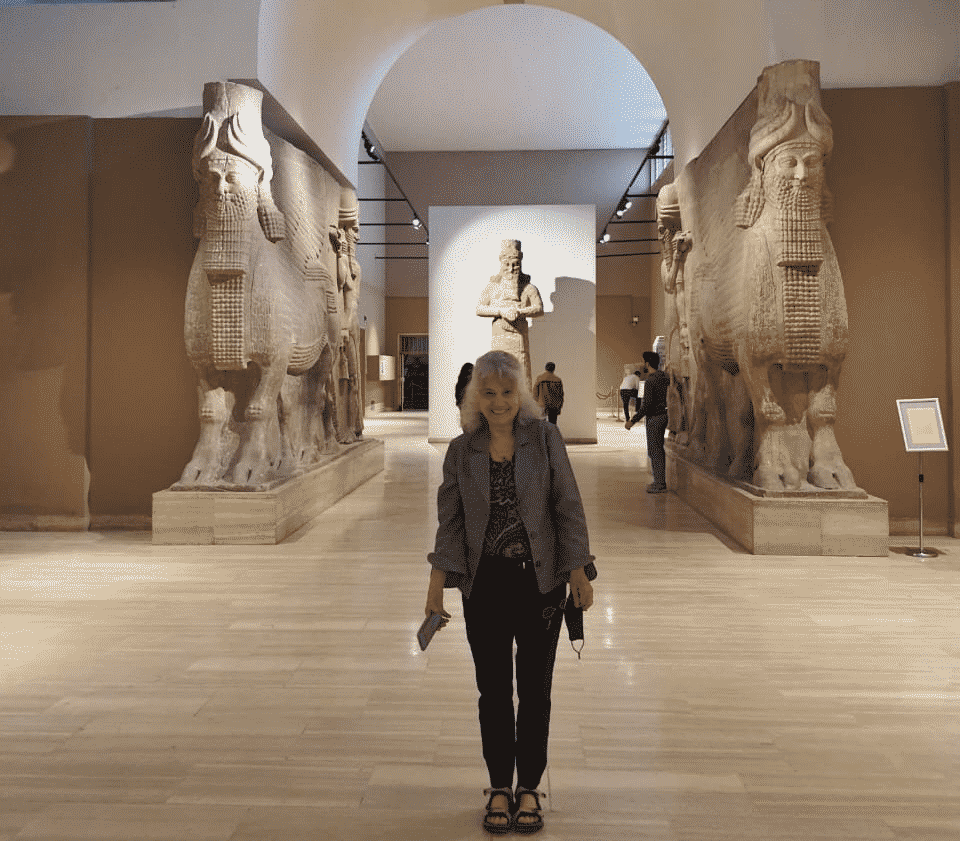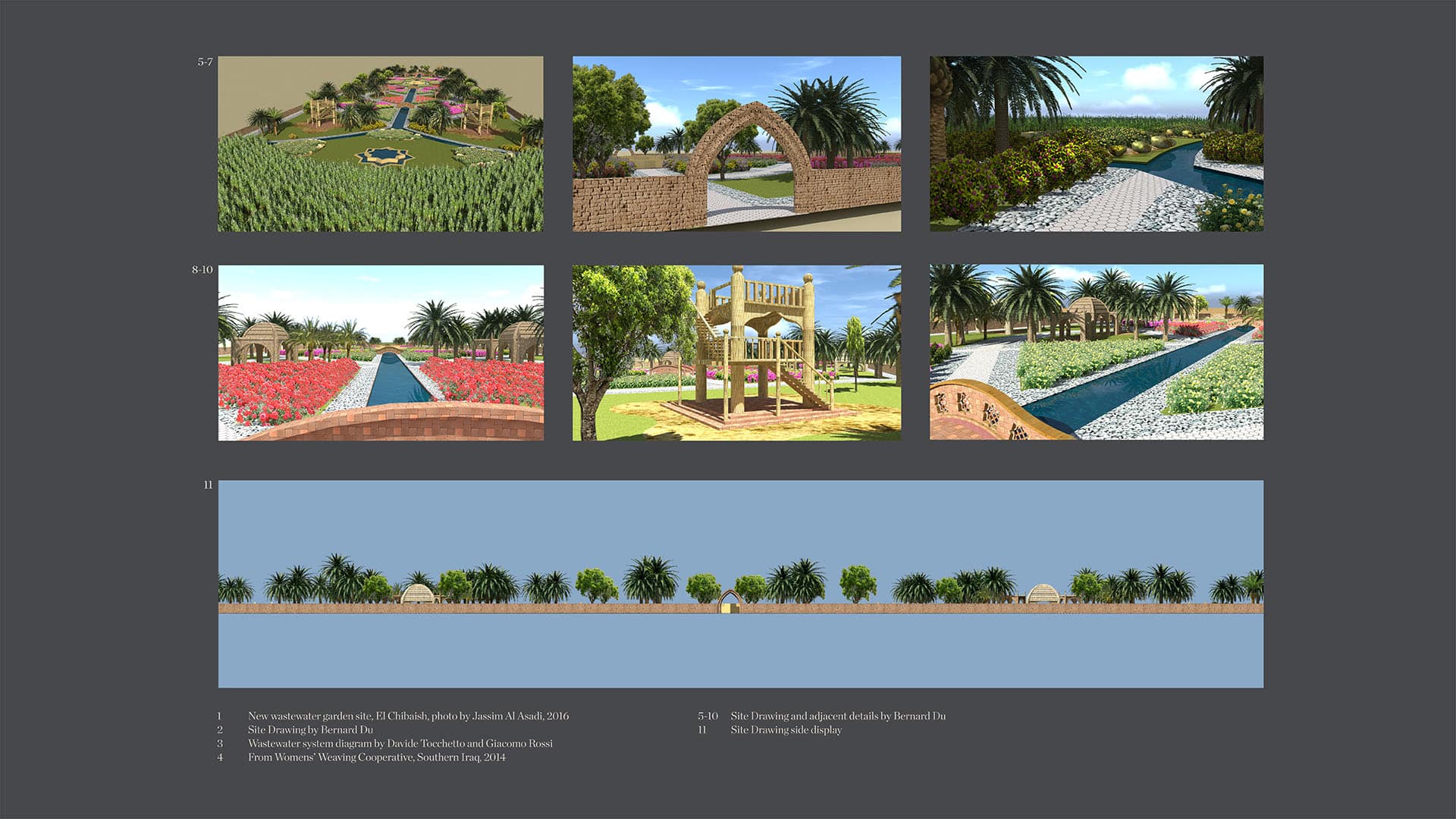Eden in Iraq
A Wastewater Garden ProjectWater remediation in the Mesopotamian marshes of Southern Iraq
Eden in Iraq is a water remediation project named as such since the project is located very near a possible site of the historic Garden of Eden. It will be a centre of cultural heritage and environmental awareness. The project includes the design and construction of an ecological wastewater treatment system in the town of El Chibaish, located in the historic marshes formed by the Tigris and Euphrates which join on the eastern edge.
A project of
Nature Iraq (NGO)
Institute of Ecotechnics (nonprofit in USA and UK)
Lead by
Environmental Artist Prof. Meridel Rubenstein
Environmental Engineers Dr. Mark Nelson and Dr. Davide Tocchetto, and
Jassim Al-Asadi, Engineer, Managing Director, Nature Iraq (NGO)

The marshes of southern Iraq have been home to one of the most unique and ecologically sustainable cultures in the world, the Marsh Arabs. They have lived in harmony with the marshes (the Ahwar) created by the Tigris and Euphrates rivers for 8-10 thousand years, in the birthplace of Western Civilization, the Fertile Crescent. These rivers cross on the eastern edge of the marshes, so it’s thought to be a possible site of the historic Garden of Eden. In the 1990s, to put down an uprising, the Iraqi government built diversion canals for the rivers, and transformed the vast marshlands into a desert, murdering tens of thousands of Marsh Arabs and compelling hundreds of thousands more to flee.
In 2003, Nature Iraq, the country’s first environmental NGO, helped t o punch holes with heavy equipment into the diversion canals, enabling the rivers to again create marshes. Over 200,000 Marsh Arabs have returned to re-green and restore the marshes, with Nature Iraq’s help. But now there is serious sewage pollution. The Euphrates River has become seriously polluted, putting the Marshlands and the Marsh Arab community at peril. There is currently no sewage treatment in the Marsh Arab towns and cities., Sewage is discharged without treatment into a river or marsh. This results in odor and damage to the long-term ecology of the marshes and the health of the community.
We offer a solution to prevent water contamination through the utilization of simple and sustainablewastewater recycling phyto-technology to support a garden that embodies the rich cultural heritage and tradition of the marshes and the Marsh Arab community, and provides a model for healthy recycled water for the region.
The Wastewater Garden® features locally significant design details and will engage with local craftspeople, using local materials, and ancient crafts e.g. reed structures, earthen (adobe) brick, ancient cylinder seal patterns for ceramic tiles, and a floral design layout that is inspired by Mesopotamian embroidered wedding blanket patterns. Treated water will be reused to irrigate beautiful shrubs and fruit trees, creating a beautiful public garden/park. This first demonstration Wastewater Garden will create a green space that can be scaled up and down throughout Iraq and the region, where adequate sustainable sewage control is lacking. It will be a hub for a community-centric culture to continue to manifest, allowing for local trade and cottage industries to bolster the regional economy. In addition, this nature-based solution will help to mitigate climate change by providing additional green areas for carbon sequestration.
An Environmental Impact Assessment Report has been completed and detailed plans and budgets drawn up for the project (with prior research funding (2013-2017) from Nanyang Technological University in Singapore. The EDEN IN IRAQ Wastewater Garden Project was recognized by UNESCO as one of its outstanding Global Green Citizen projects in 2020. The Ministry of the Interior has provided a 26,250 sq meter/6.4acre site where we can treat the sewage of 8000-10,000 inhabitants.
The project will be realized in two stages. In the first stage, construction involves perimeter wall building, pipe connections and planting of reeds and other marsh plants which begin the sewage treatment. In the 2nd stage, the vegetation grown in the project nursery will be planted and cultural elements and shade structures built. Design features will involve local craftspeople, to make the garden an important Cultural Heritage Site and Learning Center.
Our technology harnesses the power of microbes and plants to clean water. The process sequesters carbon, aiding in climate change mitigation, instead of adding to it like conventional huge technological treatment facilities that cost far more, using chemicals, imported technology and
electricity. The Mesopotamian Marshes is a precious canter of biodiversity, with thousands of migratory birds passing through and several endemic species, e.g., the Basra Warbler, who are only found there.
people served (estimation)
people will benefit in the project area
square meters (6.4 acres), footprint of the garden
meters of perimeter wall with adobe bricks and traditional design
local plants will be planted (both wetlands and ornamental)
The Institute of Ecotechnics is a fiscal sponsor of the Eden in Iraq project.
Support this project by making a donation today.
Project Partners
Nature Iraq NGO
Institute of Ecotechnics
Governor of Dhi Qar Province
Municipality of El Chibaish
Center for Reconstruction of Iraqi Marshland and Wetlands
UNESCO Green Citizen 2020
Iraq Ministry of the Environment, Iraq Ministry of Water Resources
Nanyang Technological University
Arizona State University, School of Sustainability
Blue Tech Research, Vancouver and Ireland

